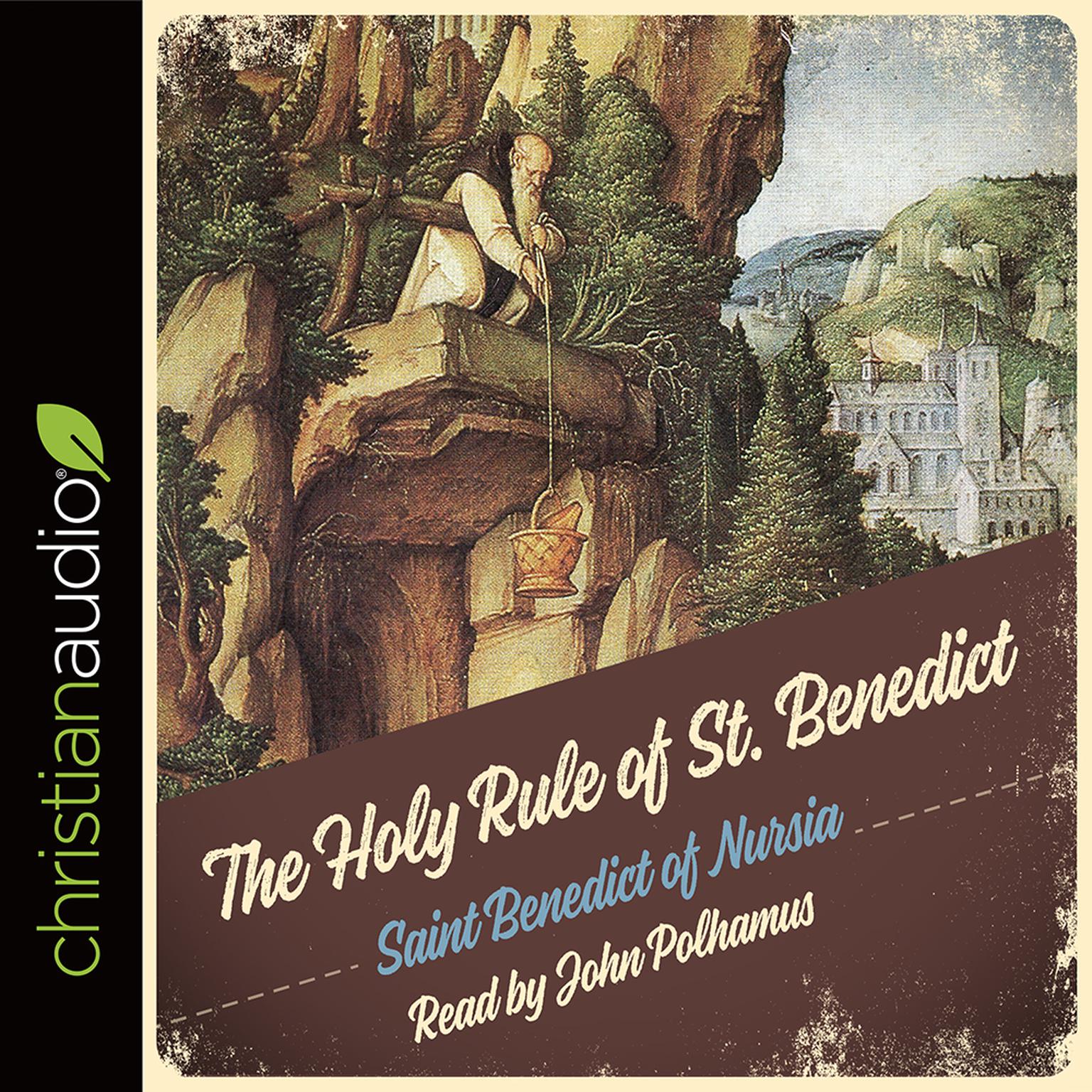 Play Audiobook Sample
Play Audiobook Sample
Holy Rule of St. Benedict Audiobook
 Play Audiobook Sample
Play Audiobook Sample
Quick Stats About this Audiobook
Total Audiobook Chapters:
Longest Chapter Length:
Shortest Chapter Length:
Average Chapter Length:
Audiobooks by this Author:
Publisher Description
St. Benedict of Nursia (c. 480 – 583 A.D.) is an important historical figure who gave birth to monasticism in the West and shaped its course. During three years of solitude and meditation in a cave, St. Benedict was sought out by dozens of townsfolk who admired him for his character and piety. To accommodate them, he set up thirteen monasteries, and presided over them as abbot. During this time, he formed his convictions about the ideal monastic life. These convictions are contained in the most influential guide for monastic life ever written, The Holy Rule of St. Benedict. It is written for laymen and emphasizes the value of work, community, simplicity, obedience, moderation, and prayer.
Download and start listening now!
Holy Rule of St. Benedict Listener Reviews
Be the first to write a review about this audiobook!
About Benedict of Nursia
Saint Benedict of Nursia (ca. 480–547) is considered the founder of Western monasticism. He founded twelve communities for monks at Subiaco, Italy, before moving himself to Monte Cassino. The religious order named after him—the Order of St. Benedict—is not commonly thought of as an order, but rather just a confederation of autonomous congregations. His most noted achievement is thought to be the Rule of Saint Benedict, which contained the precepts for his monks and greatly influenced John Cassian’s writing.


